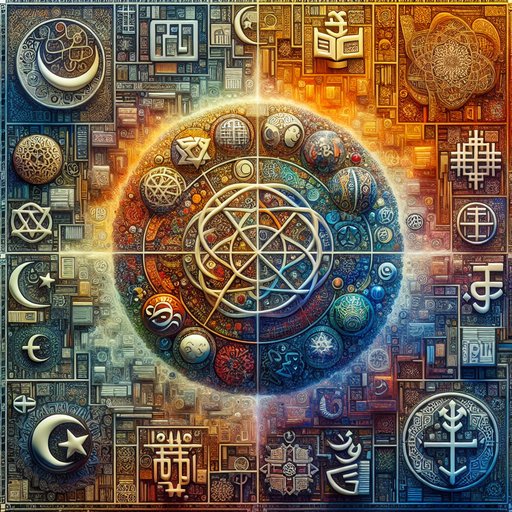
An exploration into the rich tapestry of world religions often leads to a profound understanding of our shared humanity, despite the apparent differences. This narrative delves into the philosophical conflicts and shared beliefs among the world's major faiths, illuminating the intriguing dialectic between difference and unity.
All religions begin with the fundamental curiosity of human existence, a shared question that cuts across cultural and geographical boundaries: 'Why are we here?'. From the elderly Zen monk in a Japanese monastery to the young Christian seminarian in the heart of Rome, the quest for understanding the meaning and purpose of life remains a universal pursuit. This shared curiosity, however, often diverges into different paths. In Christianity, the concept of original sin and the fall of man presents a moral framework for human existence.
In contrast, Buddhism speaks of the Four Noble Truths, focusing on the inevitability of suffering and the path to its cessation. Despite these philosophical differences, there exists an undercurrent of shared values: compassion, love, and respect for life. The Golden Rule, 'treat others as you would have them treat you' is a principle found in some form in almost every religious tradition. Yet, conflicts arise when these shared principles are interpreted through different cultural and historical lenses.
These conflicts, however, are not a testament to the divisiveness of religion, but rather a reflection of the complexity of human society. The philosophical conflicts and shared beliefs among world religions serve as a mirror, reflecting our shared human condition, our hopes and fears, our search for meaning and purpose. They remind us of our common humanity amidst the diversity. These religious philosophies, with their shared beliefs and conflicts, reflect the paradoxical nature of human existence.
They serve as a testament to our shared quest for meaning and our unique paths in seeking it. In the face of increasing secularization, these philosophies still hold an important place in understanding human nature and societal development. They are not just systems of belief, but also intricate social and psychological structures that have shaped, and continue to shape, human civilization. At the heart of these religious philosophies is the eternal dialogue between the individual and the collective, the one and the many, the part and the whole.
This dialogue, marked by shared beliefs and philosophical conflicts, continues to define our understanding of what it means to be human.























































